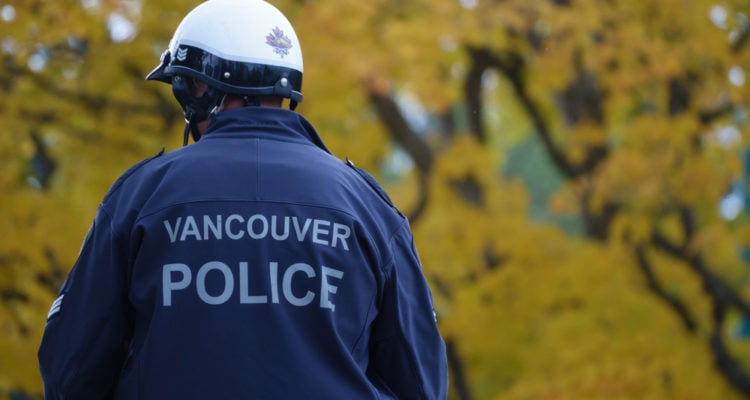The “gap in policy” will be addressed following an inquiry by B’nai Brith Canada.
By Batya Jerenberg, World Israel News
The Vancouver Police Department (VPD) has decided to modify its rules to specifically allow Jewish officers to wear the traditional skullcap (kippah), following an inquiry from B’nai Brith Canada.
VPD’s Director of Planning, Research and Audit, Drazen Manojilovic, told the veteran Jewish organization that while, to his knowledge, the force has never had a Jewish member bring the issue to their attention, the request to include this specific religious headgear “helps identify this as a gap in our policy.”
“Coincidentally, we are doing a review of our policies (on) Equity, Diversity, and Inclusion and we will make the inclusion of the Kippah in our policy,” he said.
“The VPD has been a leader in Canada in promoting a diverse work force,” said B’nai Brith Canada CEO Michael Mostyn. “Its uniform regulations allow candidates who wear the Sikh turban and the Muslim hijab to be hired as police officers.” Adding skullcaps to the list “is commendable recognition on the VPD’s part.”
“No one should have to choose between a career in policing and following the precepts of their faith,” added Marvin Rotrand, B’nai Brith’s National Director of its League for Human Rights. “We appreciate the VPD’s rapid response in correcting this gap in its policy. It sends positive signals to potential Jewish candidates that they are welcome.”
The country’s national police service, the Royal Canadian Mounted Police, already allows their Orthodox Jewish members to wear unobtrusive black skullcaps while on duty. In Quebec, however, a large majority in the legislature in 2019 barred all new (but not existing) public servants from wearing any religious symbols while doing their jobs. The list of banned items includes crucifixes, Muslim veils and hijabs, Sikh turbans and Jewish skullcaps.
Known as Bill 21, it was challenged in court by the Canadian Civil Liberties Association and others on the basis that restricting “people in authority” in such a way is discriminatory and “forcing people to dress contrary to their own private beliefs.”
In April, Quebec’s Superior Court upheld the province’s right to buttress the state policy of secularism through the law. The judge made an exception for legislators’ face veils and English schools in the majority-French speaking region due to the national Charter of Rights and Freedoms that guarantees minority language education rights.
The legal fight is not yet over, as the plaintiffs have appealed the ruling in Quebec. Justice Minister David Lametti said last month that if the case goes to Canada’s Supreme Court, “it is by definition a national issue and we will be there.”
Prime Minister Justin Trudeau made his position clear already in 2019, when in reaction to the law’s passage he said that it was “unthinkable” to “legitimize discrimination against citizens based on their religion.”





